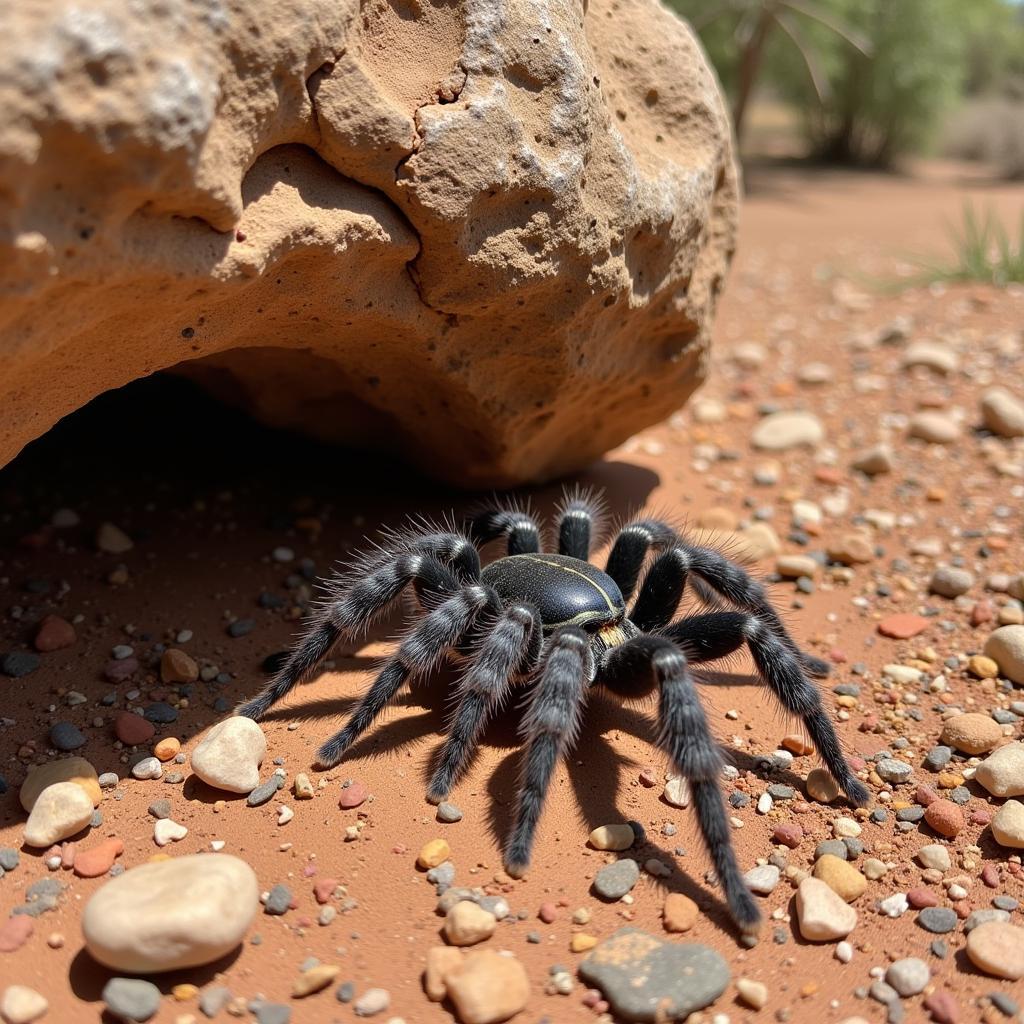Unveiling the Mysteries of the African Hermit Spider
The African Hermit Spider, a creature shrouded in myth and often misunderstood, inhabits diverse landscapes across the African continent. This article delves into the fascinating world of these arachnids, exploring their behavior, habitat, and the truth behind the common misconceptions surrounding their venomous nature.
Understanding the African Hermit Spider: Habitat and Habits
African hermit spiders, belonging to the family Sicariidae, are predominantly found in the warmer, drier regions of Africa. They prefer secluded habitats, often seeking refuge under rocks, logs, and in crevices, hence their name “hermit.” These spiders are nocturnal hunters, venturing out at night to ambush their prey, which primarily consists of insects and other small invertebrates. Unlike many other spider species, they do not spin webs to capture food.
 African Hermit Spider Habitat
African Hermit Spider Habitat
Their hunting strategy involves patiently waiting for unsuspecting prey to wander close before swiftly injecting venom to immobilize and subdue it. This venom plays a crucial role in their survival, enabling them to effectively hunt and defend themselves against predators.
Dispelling the Myths Surrounding African Hermit Spider Venom
The venom of the African hermit spider has been the subject of much speculation and misinformation. While they are venomous, their reputation as deadly spiders is often exaggerated. The venom, primarily cytotoxic, affects the tissues surrounding the bite area, potentially causing necrotic lesions. However, the severity of these lesions can vary greatly depending on the individual’s sensitivity and the amount of venom injected.
Identifying the African Hermit Spider: Key Characteristics
Identifying an African hermit spider requires careful observation. They are typically brown or reddish-brown in color, with a violin-shaped marking on their cephalothorax, the fused head and chest region. However, this marking can be faint and difficult to distinguish. Another key characteristic is their six eyes, arranged in three pairs, unlike the eight eyes found in most spiders. Their legs are long and slender, and they lack the hairy appearance of many other spider species.
Are African Hermit Spiders Aggressive?
African hermit spiders are not inherently aggressive. They are reclusive creatures and will typically only bite if they feel threatened or cornered. Most bites occur when the spider is accidentally disturbed or pressed against the skin, such as when putting on clothing or reaching into dark corners.
What to Do if Bitten by an African Hermit Spider
If bitten by an African hermit spider, it is essential to remain calm and seek medical attention. While most bites do not result in serious complications, it’s crucial to have the bite evaluated by a healthcare professional. Cleaning the bite area with antiseptic soap and water and applying a cold compress can help reduce swelling and discomfort. If possible, capturing the spider for identification can assist medical professionals in determining the appropriate course of treatment.
In conclusion, the African hermit spider, while venomous, is not the deadly menace it is often portrayed to be. Understanding their behavior, habitat, and the true nature of their venom can help dispel the myths and promote informed coexistence. While caution is advised, fear should not dictate our interaction with these fascinating creatures.
FAQ
- What is the habitat of the African hermit spider? They prefer warm, dry regions and secluded spaces like under rocks.
- Are all African hermit spider bites dangerous? Not all bites are dangerous, but medical attention is recommended.
- How can I identify an African hermit spider? Look for six eyes, a violin-shaped marking, and long legs.
- What should I do if bitten? Clean the bite, apply a cold compress, and seek medical attention.
- Are they aggressive? No, they are reclusive and bite when threatened.
- What do they eat? Insects and other small invertebrates.
- How do they hunt? They are ambush predators, using venom to subdue their prey.
Need further assistance? Contact us: Phone: +255768904061, Email: [email protected] or visit us at Mbarali DC Mawindi, Kangaga, Tanzania. We have a 24/7 customer service team.



